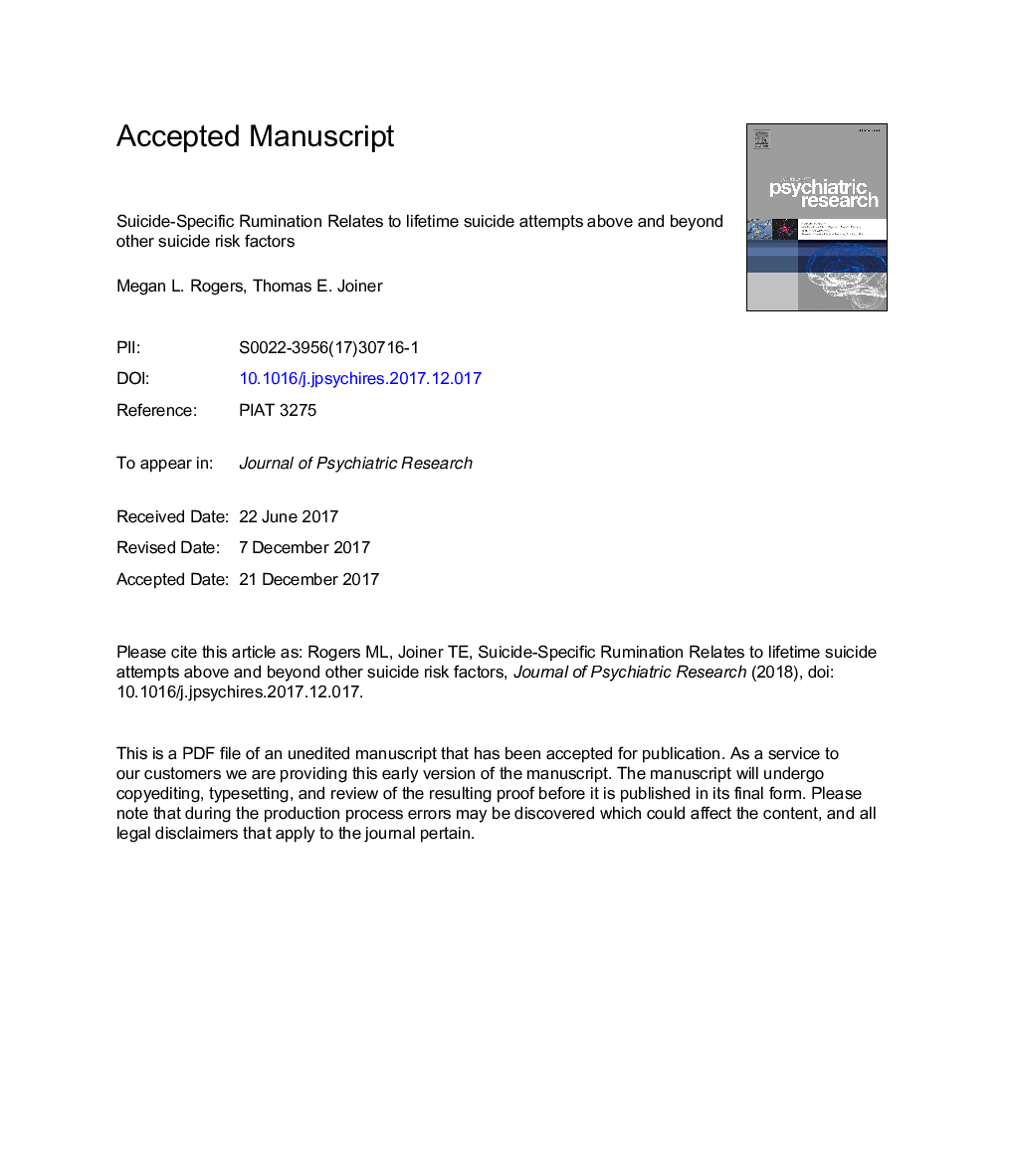| Article ID | Journal | Published Year | Pages | File Type |
|---|---|---|---|---|
| 6799679 | Journal of Psychiatric Research | 2018 | 44 Pages |
Abstract
Suicide-specific rumination, defined as a mental fixation on one's suicidal thoughts, intentions, and plans, may be an important predictor of suicidal behavior. To date, suicide-specific rumination has demonstrated convergence with, yet distinction from, a variety of suicide risk factors, and differentiated suicide attempters from ideators. However, no research has examined whether suicide-specific rumination is associated with lifetime suicide attempts above and beyond the presence of a host of other relevant suicide risk factors. The present study tested this hypothesis in samples of students (Nâ¯=â¯300) and community members recruited via Amazon's MTurk (Nâ¯=â¯209) who reported a lifetime history of suicidal ideation. Results indicated that suicide-specific rumination was associated with the presence of a lifetime suicide attempt, above and beyond a variety of other commonly-cited risk factors for suicidal thoughts and behaviors in both samples, including suicidal ideation, general rumination, interpersonal theory variables, emotion-relevant factors (dysregulation, experiential avoidance, distress tolerance, negative affect), symptoms of depression and anxiety, and overarousal. Overall, though limited by the use of non-clinical samples and a cross-sectional study design, that suicide-specific rumination outperformed all other suicide risk factors in predicting the presence of a lifetime suicide attempt suggests the potential potency of this relatively understudied risk factor in understanding transitions to suicidal behavior.
Related Topics
Life Sciences
Neuroscience
Biological Psychiatry
Authors
Megan L. Rogers, Thomas E. Joiner,
